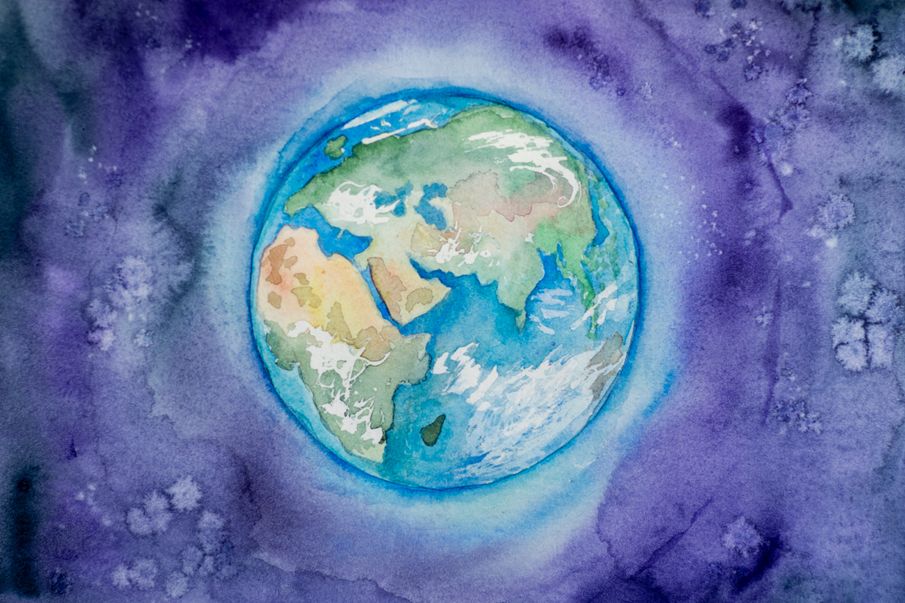Do you worry about the future of our planet in a way that makes you feel hopeless or frightened? Is it keeping you up at night? You may have eco-anxiety
Climate change is hardly breaking news, but watching Earth deteriorate day by day due to unparalleled levels of biodiversity loss and weather extremes is causing a sense of dread for some of us.
What is eco-anxiety?
It’s natural to feel concerned about our planet’s destiny, but climate anxiety goes much further than this. It’s a total fear of environmental doom, causing some people spells of intense worry.
Even though it isn’t a recognised medical condition as yet, climate anxiety is mounting amongst young people who are especially distressed about the planet that will inherit. A Save the Children study shows that 70% of those surveyed are worried about the future of the planet. Many young people can see a gap to make those all-important decisions but feel paralysed to effect serious change. This can result in feeling anger or even rage at those in power who (they believe) are failing to take enough action on this fateful matter.
Indigenous communities are also most vulnerable to climate change as they’re more likely to rely on natural resources and live in ecologically sensitive areas. Some indigenous people have already experienced the devastating effects of ecological grief, mourning the loss of their natural environment.
What can I do to help the planet (without getting overwhelmed)?
The good news is that you can make small changes around the house as a way to feel more empowered. And taking control of the way you feel about the situation with these everyday acts can reduce the sense of helplessness.
Get green-fingered
There are some lovely things you can do to put your green fingers to use, even if you live in more built-up areas. You could try having a go at some micro gardening as an easy and accessible way to grow your own food. Or if you do have some outside space, home composting is a way to fast-track your personal impact on climate change. Home composting not only reduces how much methane is released into the world, but it also helps grow plants and reduces the need for fertilisers.
Connect to the earth
Being more in tune with the planet can help release anxiety. In her article, Eco therapy for climate anxiety and well-being, eco-therapist and Counselling Directory member Josephine Burke talks about how we have become disconnected from nature, and how this can cause anxiety because we’re too knotted up in our minds rather than our bodies.
I believe it is important to think about your relationship with the natural world and where it started. It may be to do with your experience of the weather, your body, animals and pets or the natural world. What memories do you hold dear in relation to these things?
Make small changes at home
Looking at some things you can change at home can have a powerful effect on how you feel and hopefully lessen disastrous thoughts. Trying to decrease your meat consumption, reducing aerosols, avoiding fast fashion, walking more, and recycling are just some of the ways you can help.
How can I manage climate anxiety?
One of the best ways to lessen the burden of spiralling negative thoughts is to talk through your concerns with someone you trust. This may look like sharing your worries with those that feel the same, joining an activist group, or chatting with an understanding friend.
When we talk about our anxieties, it’s an effective way to manage our stress while we’re in that pressure cooker. You may even be able to source a peer support group or find one-to-one counselling beneficial.
How can counselling help me feel less anxious about climate change?
Counselling Directory member and integrative counsellor Amy Scott talks about how to find a climate anxiety or eco-grief counsellor in her article, Finding a counsellor for eco-anxiety and climate grief without the fear of being pathologised. Her tips include widening your search, researching social media and blogs, and trying to get a good recommendation. She talks about the repercussions of eco-anxiety burnout and how important it is to seek help to ease the sense of loneliness and despair.
It's important that you find the right person for you and that you feel accepted and truly heard. It can be easy to feel very alone and overwhelmed when experiencing eco-anxiety and climate grief.
Working with a counsellor can help you process your fears and ongoing concerns, helping you create a deeper sense of balance. Together, you can create a toolbox of coping strategies to help you feel calmer, develop a sense of flexibility, and look at the future with increased resilience and positivity.


Comments